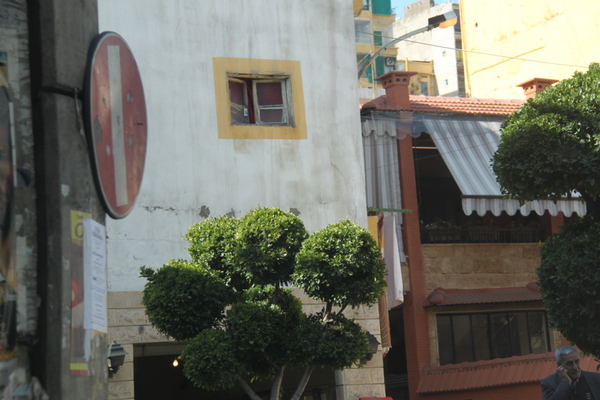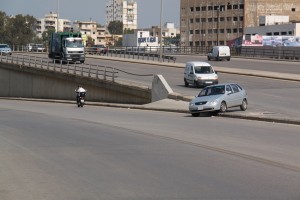It’s always good to be able to talk the talk if you really want to get to know the lovely people of Lebanon. Here are a few pointers for people planning a trip here which may help you to bluff your way into longer more meaningful conversations.
Ps and Qs
First off a few niceties. To catch a waiter’s attention use ‘pleaze’, but if you need to interrupt someone or ask a favour use ‘sorrry’. Roll the ‘r’ again when expressing thanks – ‘merci’ – or enthusiastic thanks ‘merci kteer’. ‘No’ is ‘La2’, the 2 signifying a glottal stop, or in layman’s terms, that funny half-sound that replaces the ‘t’ when most English say ‘football’. A more expressive way to say ‘no’, is to lift your chin and clack your tongue in a loud tut.
Getting around
Taxis can be confusing as they often offer two types of service. If you want a door-to-door ride it’s actually called a ‘taxi’ and will cost you 10,000 LL within town (pink face tax included; 8,000 if you really talk the talk). But if you want to be squeezed in with up to five other passengers and dropped off somewhere near your destination for a mere ‘elfayn’ (or 2,000) you should specify you want ‘servees’, which means ‘don’t try and con me even if I look foreign’. On a busy night or for a longer trip, the driver may counter with ‘serveesayn’, which is double the fee, and acceptable depending on demand.
Lebanese is beautifully simple in many ways. When you’re waiting on the curb and a honking Mercedes, older than you are, pulls up to offer a ‘servees’ ride, no need for elaborate requests. Just ask ‘Hamra?’ or ‘Adlieh?’ or wherever you want to go. If it’s on his way, or he can reconcile it with his other passengers, he’ll pause just long enough for you to scramble in. If he roars off leaving you in a cloud of exhaust, well, that’s a ‘no’. He may or may not bother to tut, but you get the point.
‘Fo2’ doesn’t just mean the preposition ‘up’ it also means the place ‘up’, whatever it may be, so ‘up the hill’, ‘up in the mountain’, ‘our higher altitude home as opposed to our coastal residence’ or simply ‘upstairs’. The opposite (for all options) is ‘taHt’. When out and about you may be offered something you do not wish to accept (eg coffee, shoe polishing and so on), you can politely decline with ‘mara taani’, literally ‘second time’, that is ‘another time’ and also covering the possibility of ‘not now and probably not ever’.
Working ‘barra’, or ‘outside’ does not mean farmwork or roofing, it means working abroad. Bear in mind there are more Lebanese ‘outside’ than there are still living in the country so this is an ever present concept. It can also be a matter of status, as diplomas obtained ‘outside’, or products which have been imported have a perceived edge over their local equivalents.
Being a good guest
Dinner conversation is also useful, as eating is a delightful, frequent and lengthy pastime in Lebanon. ‘SaHtein’ means ‘bon appetit’ or literally ‘two healths’. You should reply ‘Aa-elbak’ (or ‘Aa-elbik to a girl) to wish good health back on their heart for thinking of your belly, but if you forget how, ‘merci’ will do. You will necessarily want to compliment the hostess and tell her that ‘kill shi tayyeb’, everything is delicious, because it always will be. You may wish to use ‘selim dayetik’ to bless her hands for their hard work.
By the time the starter is done, you may be asked various questions which translate literally as ‘Have you put on weight?’ ‘When will you start trying for a baby?’ and ‘Do you digest beans well?’ Don’t be scared. The meaning is, well, literal, but if you wish to take some liberty with the responses feel free. It does make first encounters more fun.



